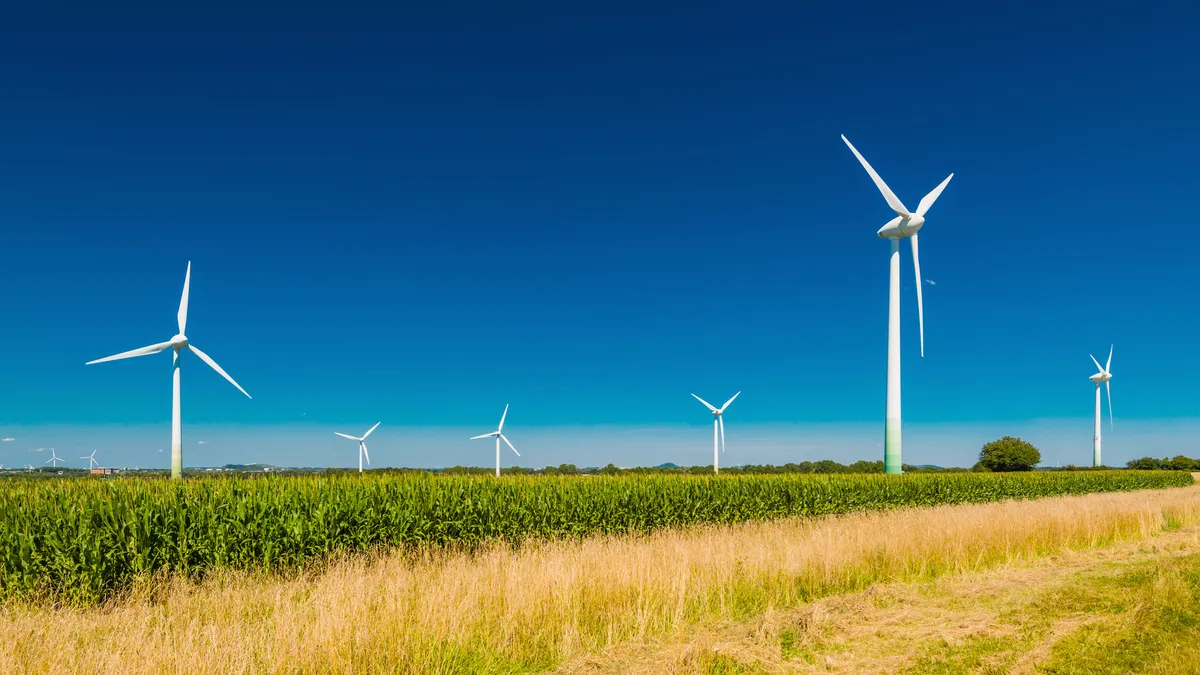Dive Brief:
- DTE Energy on Friday released its 2018 Renewable Energy Plan, proposing to double the utility's renewable capacity by 2022 largely through the addition of large scale wind resources. The utility says its plan would drive $1.7 billion in investment and grow its renewable energy capacity from 1 GW to 2 GW, largely through the addition of wind power.
- Submitted to the Michigan Public Service Commission, DTE proposed adding 1 GW of renewable energy in order to meet the state's 15% Renewable Portfolio Standard (RPS).
- Two wind parks coming online this year and next, Pine River and Polaris, will provide 330 MW of capacity and will be DTE's largest wind resources so far.
Dive Insight:
DTE's proposal includes a small amount of solar energy, but the Michigan utility is banking hard on large wind farms coming online over the next few years.
Major capacity additions included in the plan include: the Pine River and Polaris parks; adding 300 MW of new wind capacity in 2020 to supply a new voluntary renewable energy program for large customers seeking to reduce carbon emissions; and building two wind parks that will combine for 375 MW, beginning operation in 2021 and 2022.
The utility is also planning to add about 15 MW of solar in the state in the next three years, boosting DTE's solar capacity by almost 25%. And DTE Energy Chairman and CEO Gerry Anderson said the utility would be looking to add even more green resources.
DTE is working to cut carbon emissions by more than 80% by 2050, and has laid out a plan that includes reducing coal resources and replacing them with gas-fired plants. The utility will continue operating the Fermi 2 nuclear plant and plans to reduce emissions by 45% by 2030, and 75% by 2040.
DTE's plan comes as activists are hoping to turn Michigan towards a greater reliance on renewable energy. The Detroit News reports Tom Steyer, a billionaire activist who launched the NextGen America super PAC, will spend $3.5 million in the state ahead of the midterm elections in November.
Steyer is also backing a Michigan ballot proposal to increase the state's RPS to 30%. Advocates lost a similar battle in 2012 when they pushed for a 25% requirement, due to a financial onslaught from DTE Energy and fellow Michigan utility Consumers Energy. DTE Energy CEO Gerry Anderson told Crain's in February that the current proposal should only be used as a "last resort," essentially opposing it.














